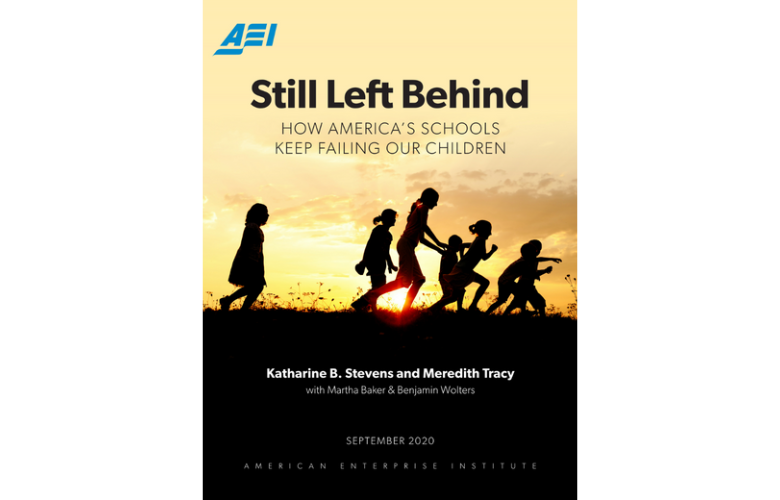Why Children Can’t Read — and What We Can Do About It
Event Summary
On October 29, AEI’s Katharine B. Stevens hosted an event on the crisis in the number of US children failing to learn how to read. Reading proficiency by the end of third grade is a crucial predictor of school, work, and life success. Yet, roughly half of lower-income, Hispanic, and black fourth graders cannot read at even a basic level.
Emily Hanford of APM Reports presented her groundbreaking work showing how a deeply flawed idea about how to teach reading is widening early inequalities. She explained the cognitive science of how children learn to read and highlighted the jarring disconnect between that science and how reading is overwhelmingly taught in US schools. Strong language skills, developed starting at birth, provide an essential foundation for reading. But for children to become strong readers, their speaking and comprehension skills must be combined with explicit instruction in decoding the written symbols corresponding to spoken language. Few teachers know this or teach accordingly.
A panel of experts then discussed how to build strong reading skills for all children, starting at birth. Panelists agreed that ensuring children’s reading proficiency by the end of third grade is perhaps public schools’ most crucial function, deserving much greater policy focus.
Event Description
Early reading proficiency is a crucial predictor of school, work, and life success. A deeply flawed idea about how to teach reading is widening early inequalities, setting millions of children up to fail.
Children who do not read proficiently by third grade are four times more likely to drop out of high school. Yet, in 2019, just one-third of US fourth graders were proficient in reading. Roughly half of both lower-income and black fourth graders could not even read at a basic level.
Join AEI to hear award-winning journalist Emily Hanford of APM Reports explain her groundbreaking work revealing how schools are not teaching children how to read. A panel of experts will then discuss how to build strong literacy skills for all children, beginning at birth.
Event Materials
Emily Hanford’s presentation video, with clean audio.
Munro Richardson: “How to avoid a ‘K-shaped’ literacy recovery”
Agenda
10:00 AM
Welcome and introductions:
Katharine B. Stevens, Resident Scholar, AEI
10:05 AM
Presentation:
Emily Hanford, Senior Producer, APM Reports
10:30 AM
Panel discussion:
Margaret Goldberg, Cofounder, Right to Read Project
Munro Richardson, Executive Director, Read Charlotte
Ralph Smith, Managing Director, Campaign for Grade-Level Reading
Carey M. Wright, Mississippi State Superintendent of Education
Moderator:
Katharine B. Stevens, Resident Scholar, AEI
11:15 AM
Q&A
11:30 AM
Adjournment
See Also
Report ~ September 21, 2020
Blog ~ December 21, 2020
Op-Ed ~ May 4, 2015




